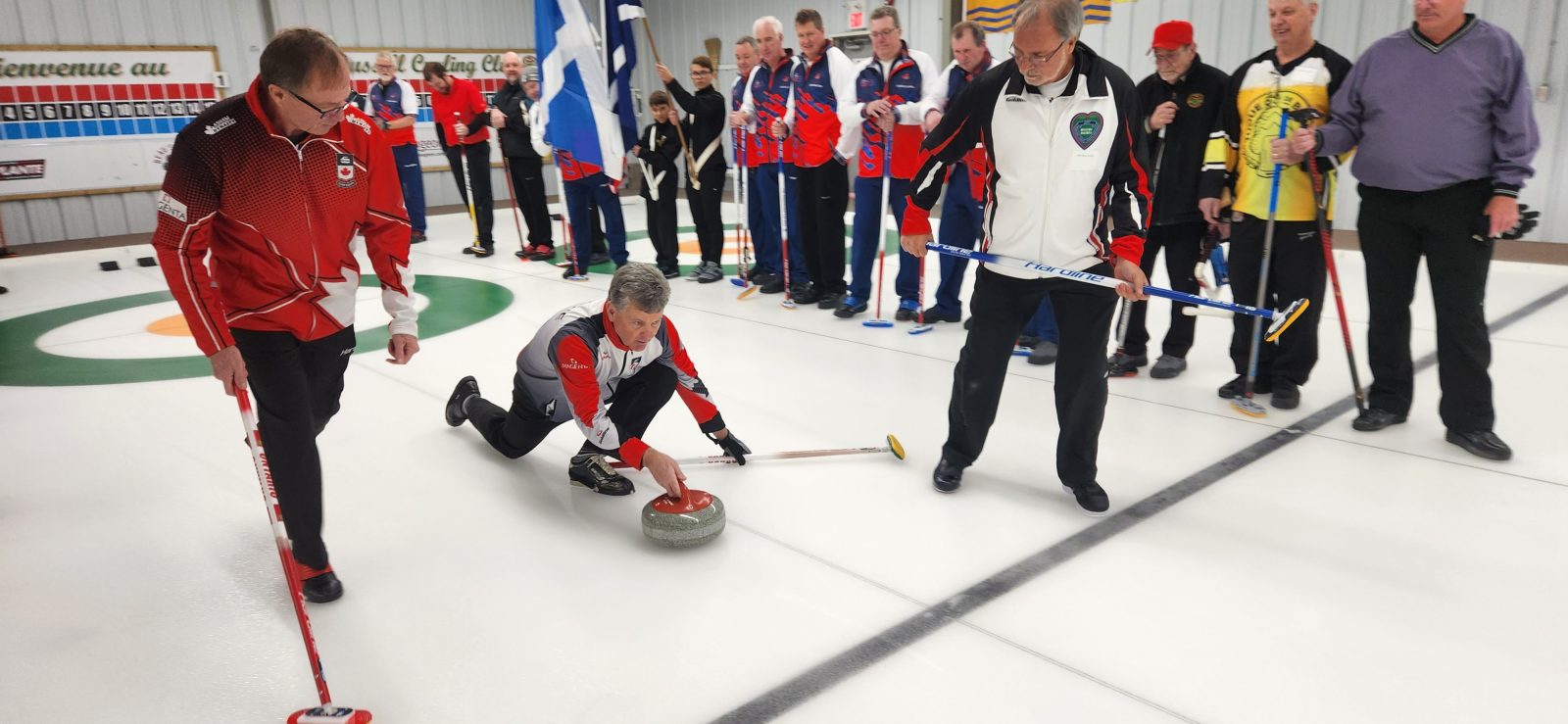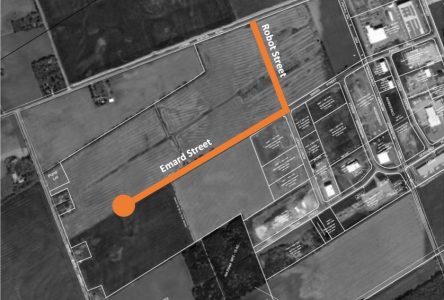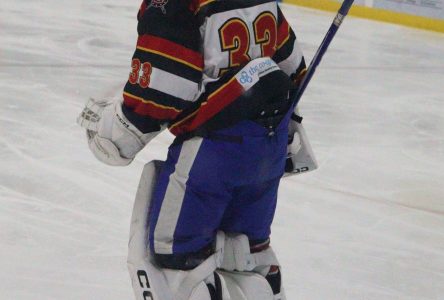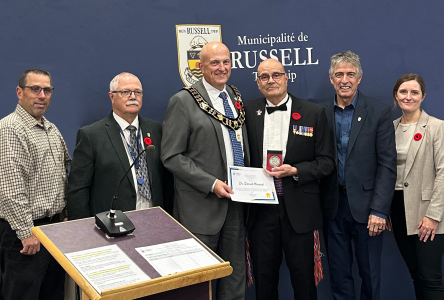On January 31, the Russell Curling Club welcomed the Scotland East Tour as they arrived to compete in Game #28 of the Strathcona Cup. Committee Chair Jim Campbell was very excited to host this installment of the cup, and said, “I think it’s fabulous, a wonderful thing. It’s great for the club, great for the community, great for everybody.”
The Scots arrived at 10:30 am and enjoyed lunch provided by the Russell Curling Club before being piped onto the ice, a tradition where the curlers file to their places accompanied by bagpipes. Then, the sixth-grade students from Russell Public School sang the national anthems of both countries, Oh, Canada and The Flower of Scotland, before the game began in earnest.
The Strathcona Cup began in 1903 when the Royal Caledonian Curling Club (RCCC) answered Canada’s invitation to compete against our national teams. Scotland selected a team of 25 curlers to represent them, led by the Rev. John Kerr of Dirleton, and sent them overseas to Canada. Due to the slow nature of ocean and railway travel at the time, the team landed in Halifax, Nova Scotia around the end of December 1902 and remained in Canada for two months. The Scots traveled through Montreal, Ottawa, Toronto, and Winnipeg before crossing the border to Minneapolis, St. Paul in Chicago, and New York City.
The tour was so successful that five years later, in 1908, the RCCC decided to return the favor and invite a team of Canadian curlers to Scotland for a second Strathcona Cup. The tradition has continued in this fashion for 120 years with Canada and Scotland taking turns hosting, although it’s a little different nowadays. There are three Tours of the Strathcona Cup: the East Tour started from Halifax, the Central Tour started from Toronto, and the West Tour started all the way in Tunnel Town, British Columbia. All three Tours will meet up in Ottawa for the final game on February 2.
“It is an incredible honour for our community to be part of this prestigious international tradition,” said Russell Mayor Pierre Leroux in an email. “I want to extend a warm welcome our international guests. It is a pleasure to have you here for this wonderful event.”



